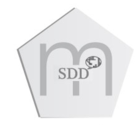Peter Jones
|
Peter Jones is one of the Mentors in the Science of Dialogic Design of the Reinventing Democracy project.
Peter Jones, Ph.D. is associate professor at OCAD University, Toronto, and is founding faculty and teaches in the Strategic Foresight and Innovation and Design for Health graduate programs. Peter guides participatory action and systemic design research in healthcare, media, collaborative governance and policy design through the Strategic Innovation Lab (http://sLab.ocadu.ca). He is also a founder and co-chair of the annual Relating Systems Thinking and Design (RSD) symposium, a program sanctioned by the Systemic Design Research Network (http://systemic-design.org). Peter founded and convenes the Toronto-based Design with Dialogue series (http://designwithdialogue.com) and its communities of inquiry, Unify Toronto Dialogues and Systems Thinking Toronto.
Peter's research agenda promotes and engages: Dialogic design and collaborative modes of foresight, Healthcare and clinical system/service design, Systemic design method and theory, Systemic policy design, Strongly sustainable (ecological) business models, The flourishing society as an innovation of civil ecology, and the Evolution of scholarly publishing.
Peter manages two small businesses, Dialogic Design International (which he started in 2007 with Aleco Christakis, Tom Flanagan, and Ken Bausch as a US consulting center for SDD) and the Redesign Network (a boutique systemic design and research firm with associates in the US and Canada). Redesign specializes in healthcare, professional practice and high-tech sectors, designing for clinical informatics, medical and higher education, and other complex work systems.
Peter is an active board member of the Institute for 21st Century Agoras, and works with a worldwide practice network to advance the dialogic design practice and theory, for inclusive, multi-stakeholder participation in solution creation for wicked problems in global and civil society. He published Design for Care (Rosenfeld Media, 2013) http://designforcare.com and other books and articles available on his website Design Dialogues.
Videos
External Links
Citations
Jones, P. (2014). Design Methods for Systemic Design Research. In Proceedings of RSD3, Third Symposium of Relating Systems Thinking to Design. Oslo, Norway: Oslo School of Architecture and Design, October 15-17, 2014.
Jones, P. and Upward, A. (2014). Caring for the Future: The Systemic Design of Flourishing Enterprises. In Proceedings of RSD3, Third Symposium of Relating Systems Thinking to Design. Oslo, Norway: Oslo School of Architecture and Design, October 15-17, 2014.
Jones, P. (2014). Relating Systems Thinking and Design II. Theoretical evolution in systemic design. FORMakademisk, 7 (4).
Jones, P., Robinson, J., Yip, A., Oikonen, K. Starkman, A. (2014). Human-centred mental wellness: Discovering touchpoints before a service encounter. Touchpoint: The Journal of Service Design, 6 (2), 58-61.
Jones, P. (2014). Systemic design principles for complex social systems. In G. Metcalf (ed.), Social Systems and Design, Volume 1 of the Translational Systems Science Series, pp 91-128. Springer Japan.
Weigand, K., Flanagan, TR, Dye, KMC, and Jones, P. (2014).Collaborative foresight: Complementing long-horizon strategic planning. Technological Forecasting & Social Change, 85, 134–152.

